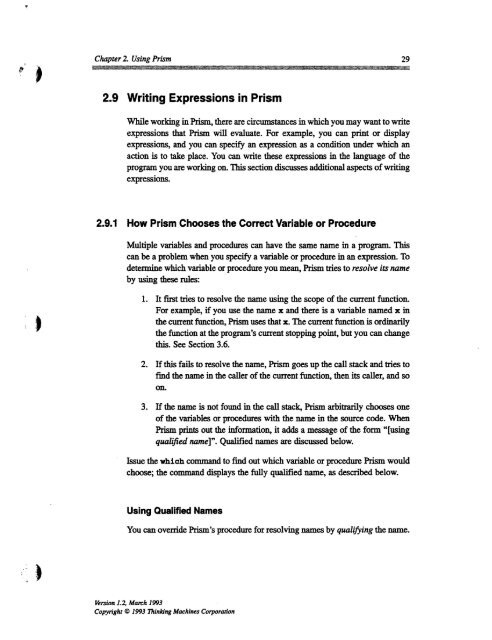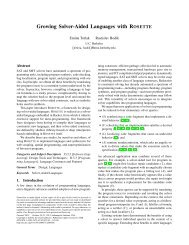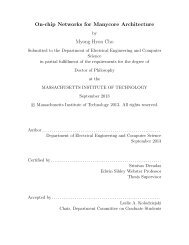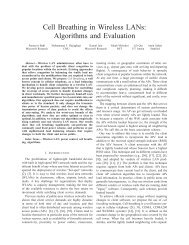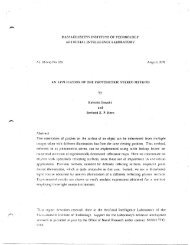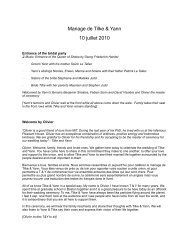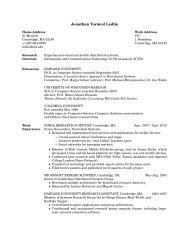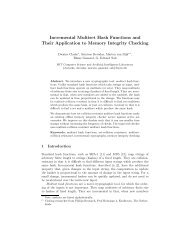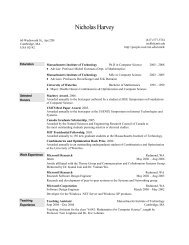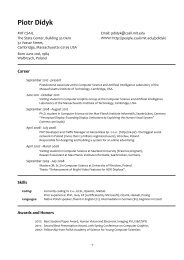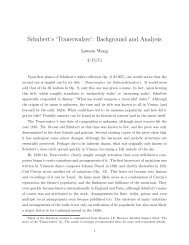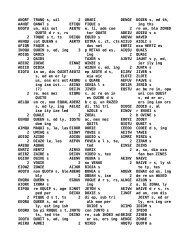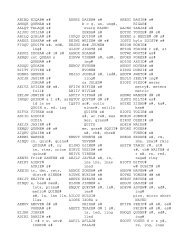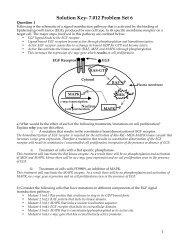Prism User's Guide - CSAIL People - MIT
Prism User's Guide - CSAIL People - MIT
Prism User's Guide - CSAIL People - MIT
Create successful ePaper yourself
Turn your PDF publications into a flip-book with our unique Google optimized e-Paper software.
Chapter 2. Using <strong>Prism</strong> 29<br />
Chpe . Usn Pris 29 .<br />
2.9 Writing Expressions in <strong>Prism</strong><br />
While working in <strong>Prism</strong>, there are circumstances in which you may want to write<br />
expressions that <strong>Prism</strong> will evaluate. For example, you can print or display<br />
expressions, and you can specify an expression as a condition under which an<br />
action is to take place. You can write these expressions in the language of the<br />
program you are working on. This section discusses additional aspects of writing<br />
expressions.<br />
2.9.1 How <strong>Prism</strong> Chooses the Correct Variable or Procedure<br />
Multiple variables and procedures can have the same name in a program. This<br />
can be a problem when you specify a variable or procedure in an expression. To<br />
determine which variable or procedure you mean, <strong>Prism</strong> tries to resolve its name<br />
by using these rules:<br />
1. It first tries to resolve the name using the scope of the current function.<br />
For example, if you use the name x and there is a variable named x in<br />
the current function, <strong>Prism</strong> uses that a. The current function is ordinarily<br />
the function at the program's current stopping point, but you can change<br />
this. See Section 3.6.<br />
2. If this fails to resolve the name, <strong>Prism</strong> goes up the call stack and tries to<br />
find the name in the caller of the current function, then its caller, and so<br />
on.<br />
3. If the name is not found in the call stack, <strong>Prism</strong> arbitrarily chooses one<br />
of the variables or procedures with the name in the source code. When<br />
<strong>Prism</strong> prints out the information, it adds a message of the form "[using<br />
qualified name]". Qualified names are discussed below.<br />
Issue the which command to find out which variable or procedure <strong>Prism</strong> would<br />
choose; the command displays the fully qualified name, as described below.<br />
Using Qualified Names<br />
You can override <strong>Prism</strong>'s procedure for resolving names by qualifying the name.<br />
Version 1.2, March 1993<br />
Copyright © 1993 Thinking Machines Corporation


